Submitted by WA Contents
De Zwarte Hond and Loer Architecten built Mercado apartments with stepped and greenish volume
Netherlands Architecture News - Nov 22, 2023 - 13:42 2056 views

De Zwarte Hond and Loer Architecten have built Mercado apartments with stepped and greenish gridded façade in Groningen, in the Netherlands.
Named Mercado, the 8,400-square-metre building consists of retail and residential units, offering 41 luxury apartments and penthouses, restaurants, and parking.
Developed as part of the redevelopment of Rode Weeshuisstraat, Mercado was added to Groningen city centre’s north side next to the new Stalplein, the scheme embodies an urban transformation geared towards pedestrians and encounters, according to De Zwarte Hond and Loer Architecten.
The project was developed for developers MWPO and Beauvast. The building was designed on a monumental plinth with 41 sustainable apartments above it, built by Plegt-Vos.
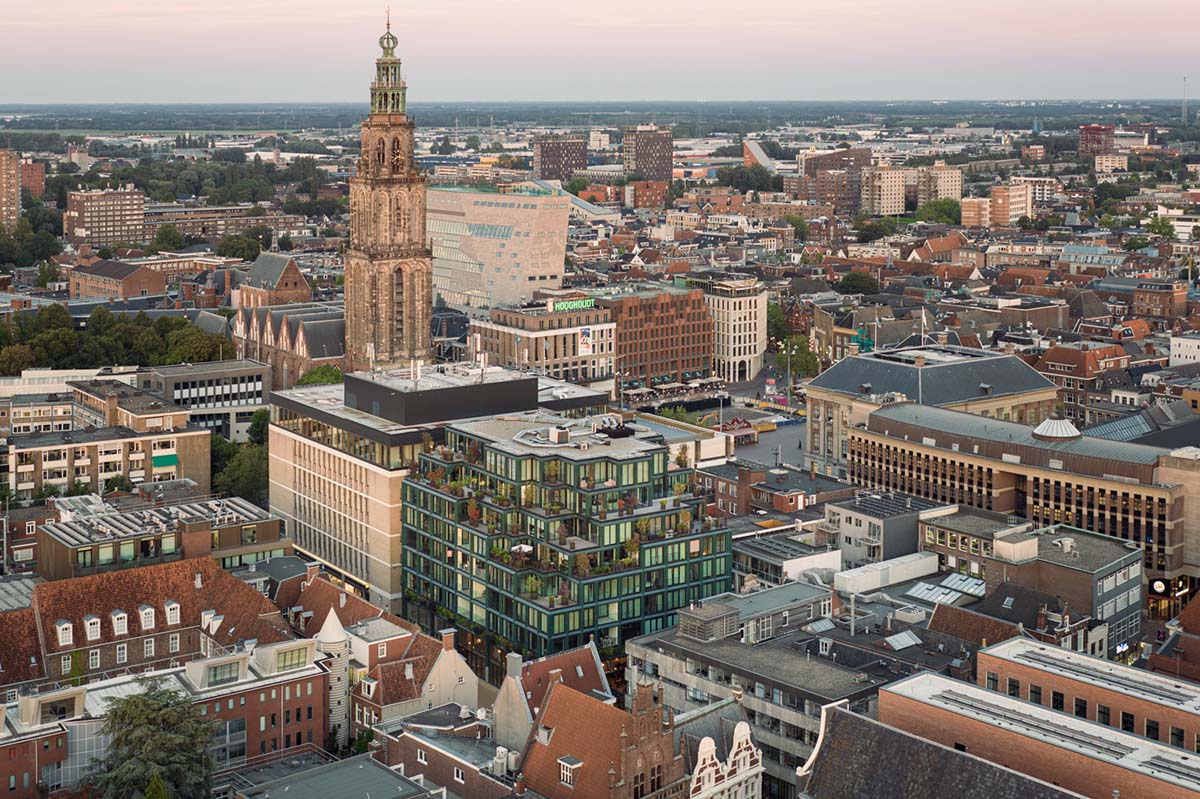
Image © Marcel Ijzerman
Revitalizing the city centre’s north side
"In the new urban development plan, Rode Weeshuisstraat is no longer the back of Grote Markt but the front of the city centre’s north side," said De Zwarte Hond.
Designed on a compact footprint, thanks to Mercado, cars will give way to pedestrians, as the firm emphasized. The Mercado was transformed from a former V&D department-store warehouse into a residential unit.
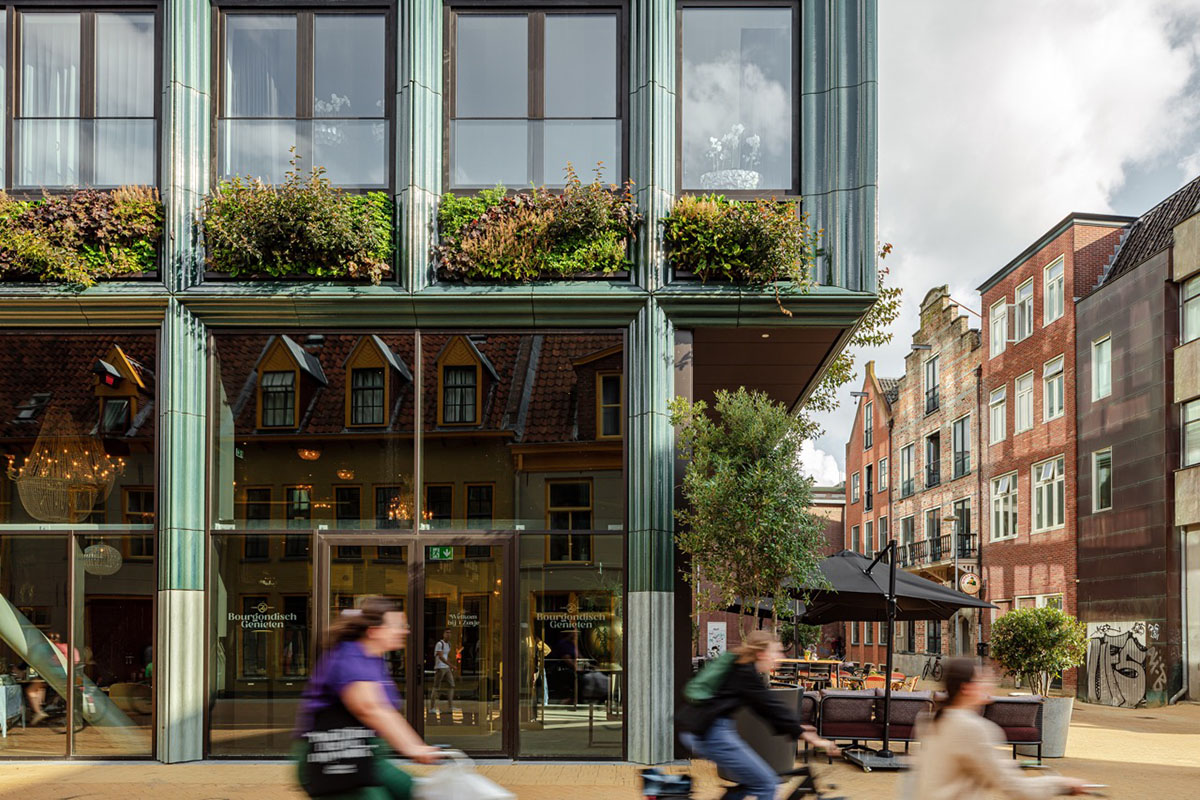
The design team redesigned building with the combination of the street by adding a generous 6-metre-high transparent plinth, which, together with the new square, creates a meeting place.
"In terms of scale, Mercado forms the link between Grote Markt and Rode Weeshuisstraat. The buildings on Grote Markt are of a larger scale than those on the north side of Rode Weeshuisstraat, including the Weeshuis (orphanage) itself," said the team.
"Mercado combines these scales in its stepped volume, which is high where possible and lower where necessary. The result is a building that fits perfectly into the city centre in terms of scale yet has its own identity," the office added.

Image © Marcel Ijzerman
Craft and character
Material choice plays a key role to define the character of the building. Crafted from ceramic elements, the façade was designed in close collaboration with ceramic manufacturer NBK and facade builder Bijlbouw.
The team used samples and mock-ups to find the perfect blue-green glaze for the facade with its custom-made details.
"Thanks to this glaze, the building appears a different colour in every type of weather, and a layering of colour and form can be discerned add a touch of artistry that refers to the richness of Groningen’s historical buildings and the optimistic rawness of post-war architecture," said the team.
"The reconstruction architecture on Grote Markt is characterized by glass, precast concrete and natural stone, while the orphanage stands out with its ornaments and stucco facades in pastel shades."

Mercado has a beige clay and semi-transparent glaze, which blends in well with both the pastel Weeshuis and the post-war block’s stone-like materials.
Flexible, sustainable, and nature-inclusive
The ground floor has been future-proofed by placing stairs and elevators to the side of the building.
"This creates an open, monumental space that can be flexibly configured for public events," said the team. "Beneath the building there are wells for a thermal energy system (TES). In combination with heat pumps, the entire building is natural gas-free."
The team added a vertical garden that runs along the facade, providing the building with 3,800 plants and contributing to biodiversity. On the south facade, climbing plants were added to cover the balconies like green privacy screens.

"The building’s stepped volume provides space for roof terraces where colourful plants and trees are part of the design," the team explained. "Special planters were designed for Mercado with a unique colour scheme to match the building."
Both the rooftop terraces and facade gardens are watered by a computerised system and regularly maintained by a gardener.
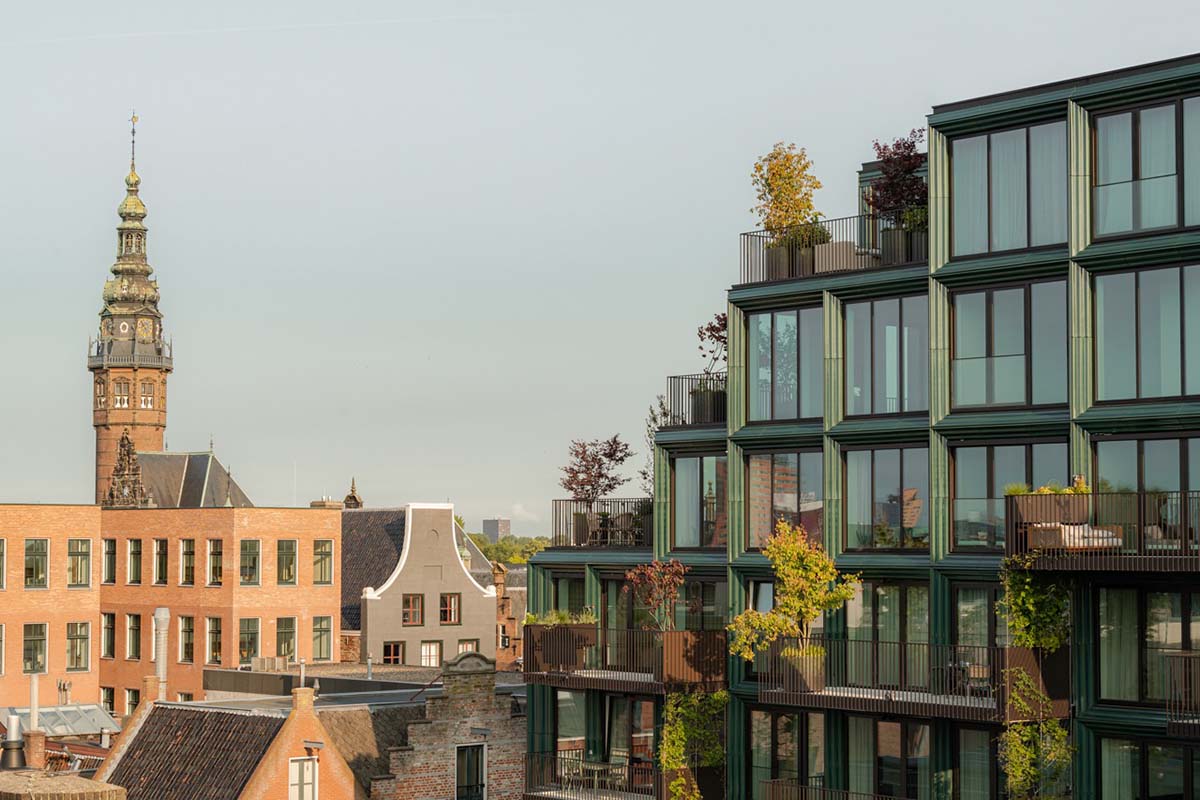
Successful transformation
In five years, Rode Weeshuisstraat has transformed from a dark side street into a unique meeting place. Loer Architecten founder Frank Loer and De Zwarte Hond partner Henk Stadens stated that: "The urban plan gives the city centre’s north side the sophistication it deserves."
"Mercado and the redesigned Rode Weeshuisstraat give the city centre a boost. The monumental plinth, greenery and ceramic facade add an exceptional quality to the centre of Groningen," they added.





Location plan

Ground floor plan

2nd floor plan
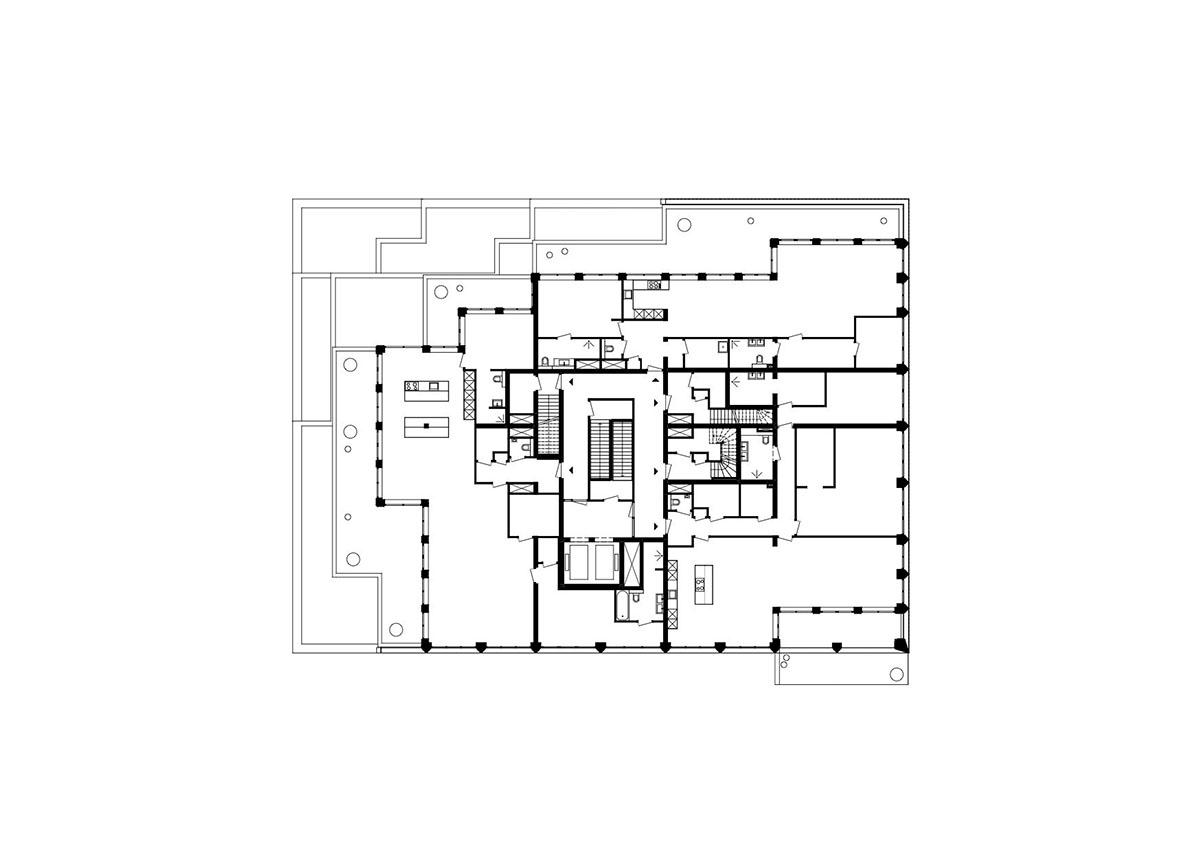
7th floor plan
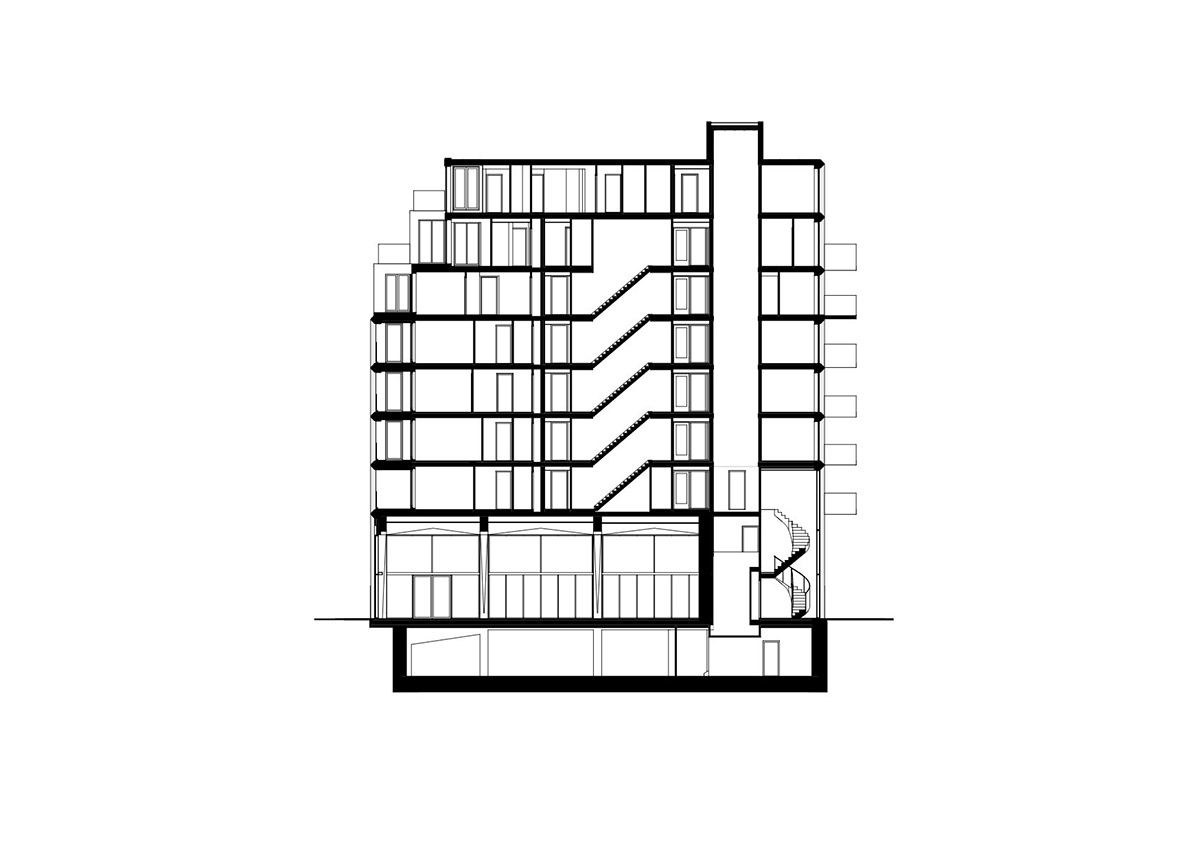
Cross section AA

Cross section BB

East facade

West facade

North facade
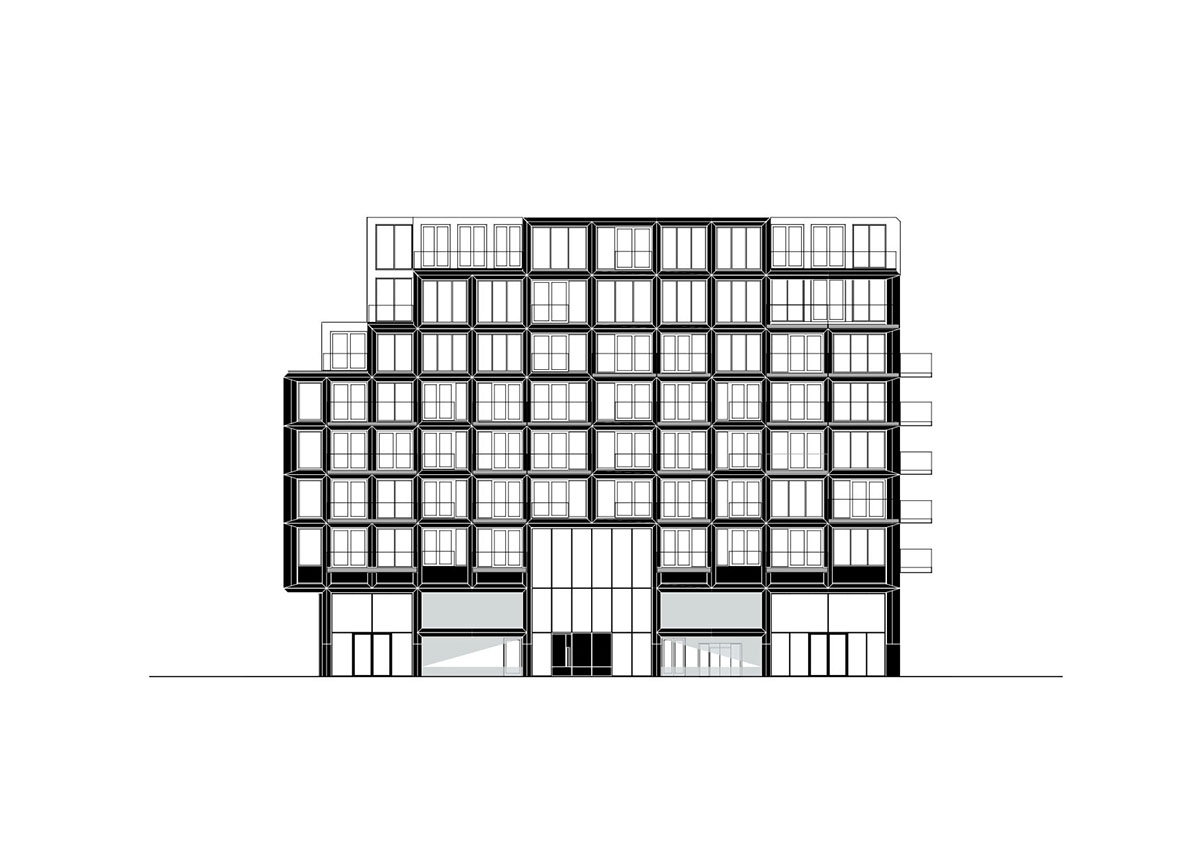
South facade
De Zwarte Hond completed an office complex, made of timber, based on a circular and sustainable approach on the Noordzeeweg, in Amsterdam Westpoort, the Netherlands.
The firm also completed a market hall that features net-like columns and beams, elevating the space to another level as a new, modern community space in Groningen.
De Zwarte Hond is a design agency for architecture, urban design, and strategy, with offices in Groningen, Rotterdam, and Cologne. Loer Architecten designs urban planning and architecture that transcends the everyday.
Project facts
Project name: Mercado
Architect: Architect ural collaboration of De Zwarte Hond and Loer Architecten
Client: Developers MWPO and Beauvast
Location: Rode Weeshuisstraat/Stalplein Groningen
Contractor: Plegt-Vos Noord
Structural Engineer: Dijkhuis
Installation Consultant: ABT Wassenaar
Building Physic Consultant: Noorman Bouw- en milieu advies
Installations: Aalbers Dijkhuis ingenieurs
Size: 8,400 sqm GFA (commercial: 2,105 sqm, residential: 6,332 sqm)
All images © Sebastian van Damme unless otherwise stated.
All drawings © De Zwarte Hond.
> via De Zwarte Hond
